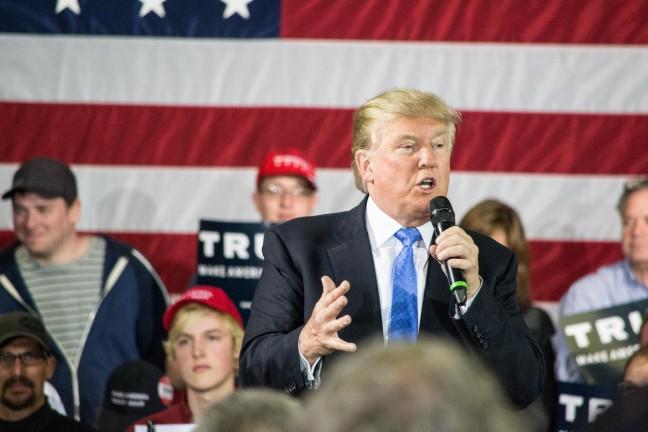Liberals can say all they want about how embarrassed they feel about the presidential election in the United States, but they have to realize America isn’t alone in a revolt against establishment politics.
President-elect Donald Trump didn’t just tap into the country’s political climate, but into one spanning across Western countries. It is a rebellion against more than 60 years of political consensus. It is how he won the rural white vote, and went on to win the election.
How did we get here?
Following the end of the World War II, politicians on the right and the left came together to form a new political order. International institutions were created to prevent future world conflicts and diplomatic rifts through common political institutions and economic policies.
If Congress knows what’s good for America, they’ll pass the TPP in Obama’s lame-duck period
The movement towards international integration, known as globalization, gradually expanded from 1945 to 2000. It had to compete with communist ideology during the Cold War, but that failed economic system only remains in a handful of countries today.
Decades ago, Ronald Reagan began working on a free trade agreement between the United States, Canada, and Mexico. His vision would eventually be realized through NAFTA under former president Bill Clinton. The bill received widespread support from both Democrats and Republicans.
Clinton would go even further, creating additional free trade agreements with nations in the Caribbean. Fast forward decades later, and you find President Barack Obama and Speaker of the House Paul Ryan working together on the Trans-Pacific Partnership, though it has now been halted.
Now as a conservative, I’ve always been a big fan of free trade. But globalization has had one major negative impact for the United States — a stagnation in the wealth of the American working class, who tend to congregate in our rural cities.
Free trade has contributed to this problem because it allowed manufacturers to move overseas when labor and regulatory costs were too high. The loss of these older industries was inevitable with globalization, but it allowed consumers to buy cheaper goods.
Clinton set herself up for failure by ignoring the cries of rural America
When globalization picked up, the United States lost many manufacturing jobs. A recent study found that 985,000 jobs were lost from 1999 to 2011. More jobs were created during that time, but mostly in services. Those blue-collar workers who were left unemployed probably didn’t have the education required to work in a bank, not because they were less smart, but the education requirements they had simply didn’t fit into the new economy.
There is also an argument to be made that immigration, specifically illegal immigration as Trump stresses, has caused job losses and reduced wages in America. This argument has some backing in academic studies, but others have found no negative impact, giving the debate no consensus of evidence. Regardless, it is an argument which rural voters clutched onto when facing their ballot.
Despite obvious benefits to both free trade and legal immigration, every policy has consequences. The blue-collar workers of our country haven’t received a higher slice of the pie compared to others. And politicians, whether they be Republicans or Democrats, seemed to be doing nothing to help them.
Then Donald Trump comes around in 2016 and talks about those two very issues. His campaign was almost uniquely tailored to those kinds of workers.
In fact, workers across the world have been shocking global institutions. Angry voters in Britain defied establishment consensus in a June referendum that will pull their country out of the European Union. The leader of the British populist movement, Nigel Farage, won’t ever be prime minister, but he changed politics in his country forever.
In Poland, the populist party Law and Justice won in 2015 with a similar message. In France, Marine Le Pen leads the National Front and is her country’s version of Trump. She is currently enjoying high poll numbers. Another party, Alternative for Germany, is on the rise for the upcoming federal election next year. All of these parties and political leaders are generally on the right and oppose the power of the European Union one way or another, which is imposing economic regulations and open immigration across the continent.
This global populist movement has now swam across the Atlantic. A new global consensus is potentially on the rise. Clinton represents the political establishment like David Cameron did in the UK and Angela Merkel does in Germany. Donald Trump was America’s Farage. Voters who were out of the political mainstream and had been suffering for years saw an opening to gain power. They did so successfully on Nov. 8, shocking elites.
While some are concerned that Trump will increase tensions with diplomatic allies, relations could be very friendly if a bunch of like-minded people are ruling in several countries. The scales of world diplomacy could be greatly altered.








